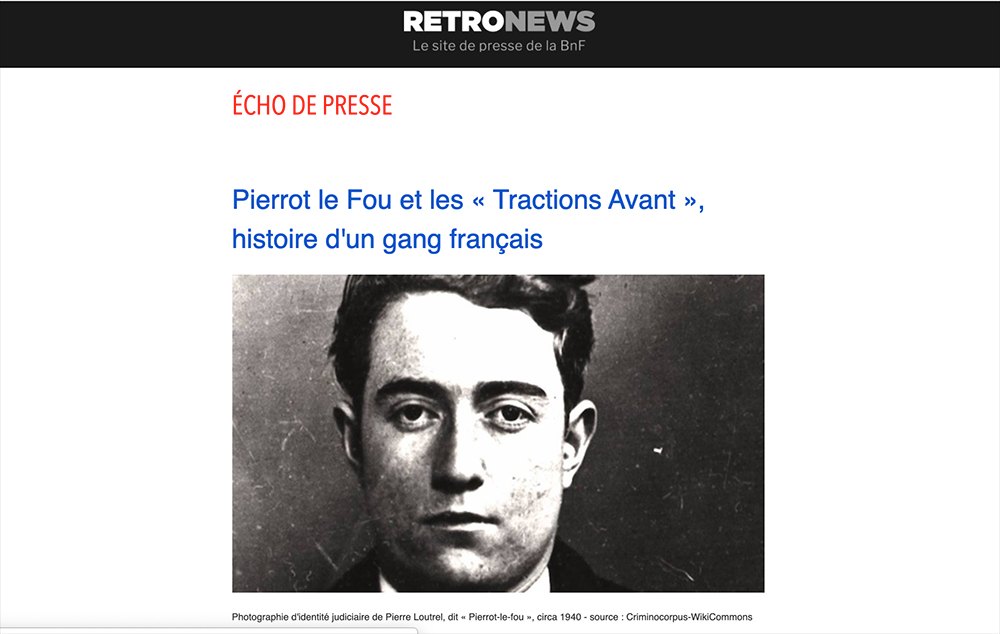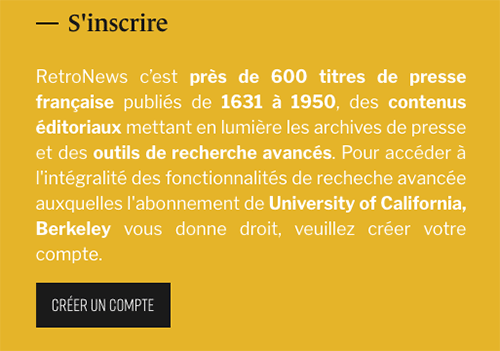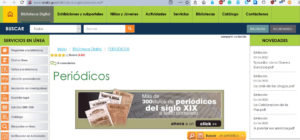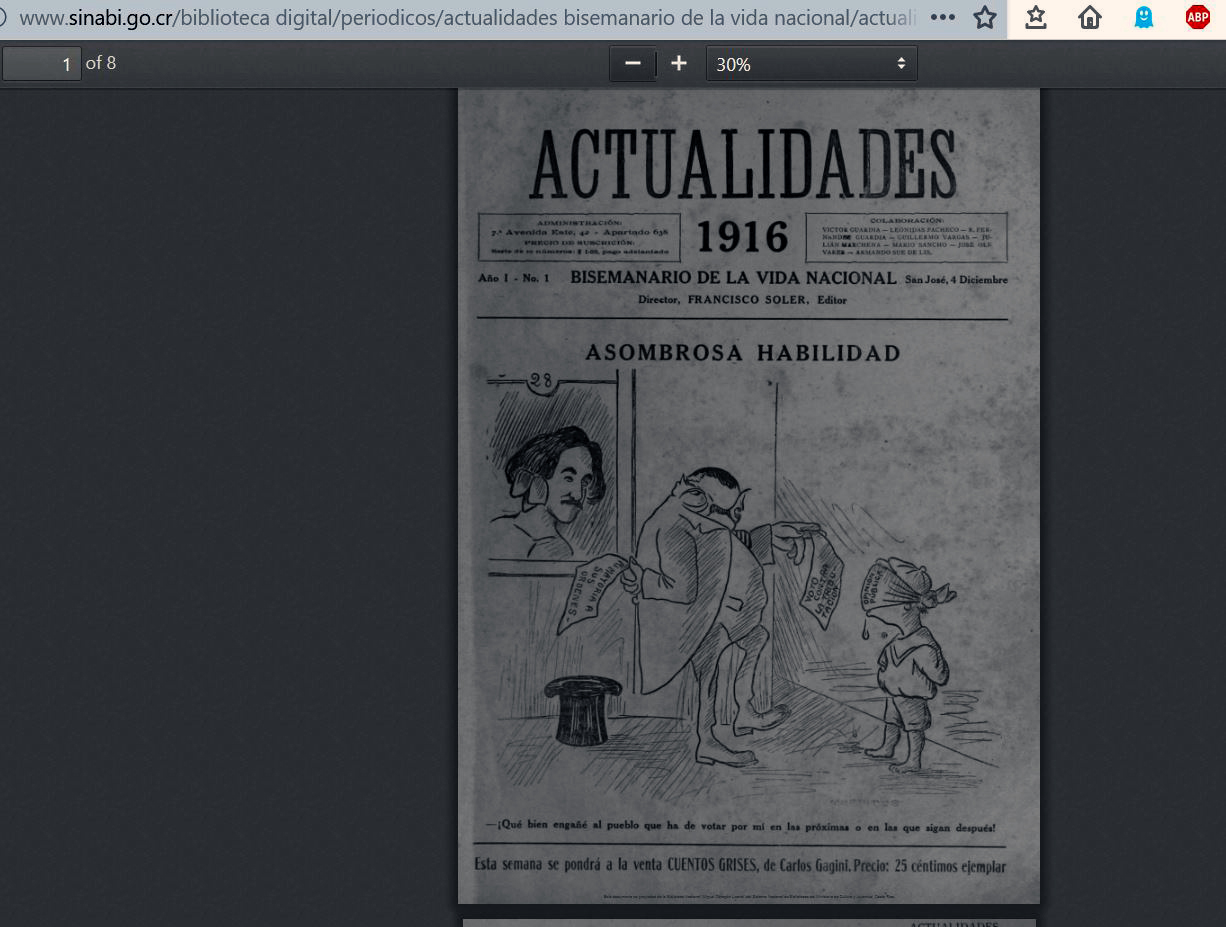Tag: newspapers
Trial: African American Newspapers, Series 2

Until March 15, the Library has trial access to Readex’s African American Newspapers, Series 2, which includes 75 newly available newspapers and complements Series 1, which the Library acquired last year.
“While African American Newspapers, Series 1, was created from the extensive newspaper archives of the Wisconsin Historical Society, Kansas State Historical Society, and the Library of Congress, Series 2 was created from the remarkable holdings of the American Antiquarian Society, Center for Research Libraries, the Library of Congress, and New York Public Library. Selections were guided by James Danky, editor of the monumental African-American Newspapers and Periodicals: A National Bibliography.”
Trial: UK Press Online
 Through the end of February, the Library has trial access to UKPress Online, a collection of historic and current newspapers. The following information was provided by the vendor.
Through the end of February, the Library has trial access to UKPress Online, a collection of historic and current newspapers. The following information was provided by the vendor.
The Daily Express (Updated daily) was launched in 1900 by Arthur Pearson as a mid-market broadsheet. The ha’penny Express was the first to devote its front page to news (rather than advertisements): “This paper is produced with the intention of supplying its readers with news. That is the excuse for its existence.” Advance orders for Issue One were a million and a half copies– “absolute impossibility to supply… we are doing our best.”
The first issue was over-subscribed. That edition began a series of articles from an Expressman in “Hayti”; another was despatched to Patagonia to search for a “giant ground sloth” – in vain, although his articles gripped readers for weeks. This policy of having “our man on the spot” became a hallmark of the Express.
When Pearson went blind, during the Great War, he sold the Express to Conservative MP Max Aitken, soon to be Lord Beaverbrook, the first “Fleet Street baron” and an evangelist of the free press – “a flaming sword which will cut through any political armour”; the paper’s symbol became The Crusader. Beaverbrook crusaded, both politically and editorially: despite personal advice to Edward VIII to give up Wallis Simpson, the Express notably chronicled every detail of their affair. And not always successfully: the Express’s vehemence against Attlee was credited with losing the 1945 election for Churchill!
By 1936, the Express had the world’s largest circulation of more than two million, rising to four million in the 1940s, under the seminal editorship of Arthur Christansen. It was one of the first newspapers to carry gossip, sport and women’s articles; it was the first to carry a crossword. With its commercial success and vast editorial staff around the world, the Express dominated Fleet Street; as a bemused Royal wrote, “I was met by a gaggle of reporters from the Daily Express and a gentleman from the Glasgow Herald”.
Express contributors run from the exiled Leon Trotsky to Evelyn Waugh (who lampooned Beaverbrook as Lord Copper – “up to a point”), William Hickey (Tom Driberg) and the cartoonist Giles.
The Express became a (black-top) tabloid in 1978. The Daily Star was a late-comer, as was the Star on Sunday, occupying the red-top tabloid slot in competition to the Sun and Mirror.
The Daily Star (Updated daily) was launched in 1978 (and is available from 2000) by Express Newspapers as a tabloid for the north of England, competing against The Sun’s Page 3 girls with its own topless Star Birds. In 1987, it lost a £500,000 libel action after accusing Tory deputy chairman Jeffrey Archer of paying hush money to a prostitute – a political scandal in those pre-Trump days…. Twelve years later, the now-Lord Archer admitted he had lied and, in 2002, he had to repay the cash with costs and interest – £1.5million. The same year, the Star launched a Sunday sister (all available – updated weekly).
Church Times (updated weekly): The World’s leading Anglican newspaper. The first 26 years, from the paper’s very first issue in 1863 to 1889, saw fierce ‘battles’ over Ritualism: one of the reasons why the Church Times was established was to defend the High Church against “Broad and Low Bigots”. The paper also warned against the digging of a Channel Tunnel, criticised President Lincoln for going to the theatre (where he was assassinated), and had a stern word for one of its advertisers: “It would be curious to learn how such a cad came to be a priest.” All of the archive is now available: cataloguing almost every page from 1863 to the present.
Daily Worker & Morning Star (updated daily): The Communist & Socialist Press providing a different angle on news – through WW2 and the new millennium.
Action, Fascist Week and Blackshirt the Fascist titles published by Oswald Mosley before and during WW2 (until banned by Churchill’s government). A view from the far Right as the World prepared for war.
The Watchman (1835-1884): primarily a Wesleyan, (and the first) Methodist newspaper, The Watchman has an impressive breadth and depth of reporting of matters of import in 19th Century Great Britain and abroad. Details of movements of clergy are useful for those trying to track their family history; parliamentary election results are published in detail; discussions of the Second Anglo-Afghan war (1878-80) may give some perspective to modern campaigns.
World War One & World War Two A key package of newspaper titles giving a broad political and geographical range of views from national and regional publishers’ newspapers: Includes the issues of all of the above titles between 1914-1918 and 1933-1945. Providing the view from ‘the North’ the WW2 editions of the Yorkshire Post cover from January 1933 to April 1946.
The South Eastern Gazette (1852-1912), formerly the Maidstone Gazette, was a major regional title for the south-east of England. Available free in the UK thanks to the ‘Your Heritage Lottery Fund’ and the Kent Messenger, the title covers Kent and much of the South-East of England from East Hampshire through Surrey and Sussex to South Essex and parts of London.”
Primary Sources: Resources on the Middle East
Over the past year the library has acquired new resources on the Middle East and North Africa, which include:
Minorities in the Middle East: Christian minorities, 1838-1967 – A digitized version of 10 volume collection primary source material. It includes original political despatches, correspondence and reports covering: Christian communities in the Levant 1838 to 1955 in overview, and the affairs of the Assyrian communities 1880 to 1951, the Greek Orthodox, Roman Catholic, Jacobite, Chaldean and Syrian Catholic communities, and Protestant communities in the Levant and Iraq, in particular, with further detail about the Maronite communities in the Levant 1841 to 1958, and Coptic Christian communities in the Levant and Egypt 1917 to 1967. These volumes also cover the Jeddah murders of 1858 and 1895, and the treatment of Armenians in Turkey and the Levant, including the Armenian massacres during the First World War.
Minorities in the Middle East : Jewish communities in Arab countries, 1841-1974 – A digitized version of a 6 volume collection, which covers the arrangements and conditions for Jewish communities living under Islam, throughout the Arab world, from 1840 to 1974.
Middle Eastern and north African Newspapers – A digital archive of prominent newspapers from the the Middle East and North Africa.
Noor Digital Library – a collection of thousands of full text Persian ebooks in humanities and religious studies. This include history, literature, language, Islam, and philosophy.
NoorMags – One of the largest specialized databases in Islamic Studies and Humanities. It provides full text access to more than 1300 magazines for over a million articles in mainly Persian, with some Arabic and English languages.
Primary Sources: Leftist Historical Newspapers and Periodicals and Communist Historical Newspapers
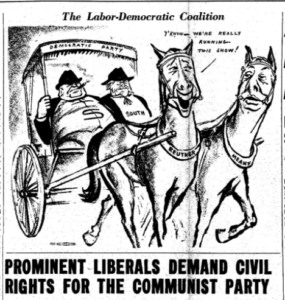 ProQuest’s Leftist Historical Newspapers and Periodicals includes publications supporting the ideology of communism, most published in the United States and United Kingdom. Dates of coverage range from 1848 to 1978, with most coverage in the early 20th century. Complete runs of some publications are not available.
ProQuest’s Leftist Historical Newspapers and Periodicals includes publications supporting the ideology of communism, most published in the United States and United Kingdom. Dates of coverage range from 1848 to 1978, with most coverage in the early 20th century. Complete runs of some publications are not available.
The Communist Historical Newspaper Collection provides full-text access to major American communist newspapers. Includes The Daily Worker (1924-1958); The Ohio Socialist (1917-1919); People’s Daily World (1986-1990); People’s Weekly World (1990-2013); Sunday Worker (1936-1958); The Toiler (1919-1922); The Worker (1922-1924); The Worker (1958-1968).
Primary Sources: California Historical Newspapers
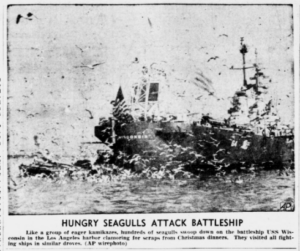 The Library’s recent acquisition of ProQuest’s Western Regional Historical Newspapers includes a few titles from California.
The Library’s recent acquisition of ProQuest’s Western Regional Historical Newspapers includes a few titles from California.
The Desert Sun (Palm Springs, CA)—1934-2011
Reno Gazette-Journal (Reno, NV)—1876-2008
The Salinas Californian (Salinas, CA)—2001-2012
San Francisco Examiner (San Francisco, CA)—1865-2007
The Spectrum (St. George, UT)—1973-2011
Spokesman-Review (Spokane, WA)—1881-2009
Statesman Journal (Salem, OR)—1869-2008
Tulare Advance-Register (Visalia, CA)—2001-2007
Visalia Times-Delta (Visalia, CA)—2001-2014
Note: The contents in this database are being added through 2021, so some publications runs are as yet incomplete.
The Library has also acquired from Newsbank:
Fresno Bee 1887-2018
Sacramento Bee 1857-2018
Primary Sources: Independent and Revolutionary Mexican Newspapers
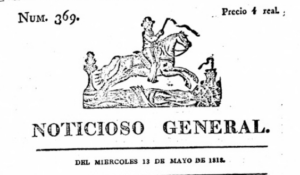 The Independent and Revolutionary Mexican Newspapers collection, created by the Center for Research Libraries, is an open access digital archive comprised of “over 1,000 titles from Mexico’s pre-independence, independence and revolutionary periods (1807-1929).” The papers “provide rare documentation of the dramatic events of this era and include coverage of Mexican partisan politics, yellow press, political and social satire, as well as local, regional, national and international news. While holdings of many of the newspapers in this collection are available only in very short runs, the titles are often unique and, in many cases, represent the only existing record of a newspaper’s short-lived publication.”
The Independent and Revolutionary Mexican Newspapers collection, created by the Center for Research Libraries, is an open access digital archive comprised of “over 1,000 titles from Mexico’s pre-independence, independence and revolutionary periods (1807-1929).” The papers “provide rare documentation of the dramatic events of this era and include coverage of Mexican partisan politics, yellow press, political and social satire, as well as local, regional, national and international news. While holdings of many of the newspapers in this collection are available only in very short runs, the titles are often unique and, in many cases, represent the only existing record of a newspaper’s short-lived publication.”
The archive is searchable, or can be browsed by newspaper title, city of origin, or language. It is also possible to find issues by date, or to select from an area on a map.
Primary Sources: Expanded access to ProQuest’s historical newspapers
The California Digital Library is piloting an arrangement with ProQuest that provides access to 52 historical newspapers (US and International titles). At the end of the calendar year, UC may elect to purchase perpetual access to some of this content. Your feedback on which resources are most useful to you is welcome.
In the Library’s A-Z databases list, these resources have been grouped geographically or thematically into these categories; in some cases there are links to individual titles that we previously purchased. Once on the ProQuest platform, you can search within a single source or across multiple sources.
ProQuest Historical Newspapers – allows you to search across all historical newspapers.
African American Historical Newspapers – Includes Atlanta Daily World, The Baltimore Afro-American, Chicago Defender, Cleveland Call and Post, Los Angeles Sentinel, New Amsterdam News, Norfolk Journal and Guide, and Pittsburgh Courier
Canadian Historical Newspapers – Calgary Herald, Edmonton Journal, The Globe and Mail, Leader-Post (Regina), Montreal Gazette, Ottawa Citizen, The Province (Vancouver), Saskatoon Star Phoenix, Times Colonist (Victoria), Toronto Star, Vancouver Sun, Windsor Star
Civil War Era Newspapers – The Boston Herald, The Charleston Mercury, The Columbus Gazette, The Daily Dispatch (Richmond, VA), The Daily Ohio State Journal (Columbus), The Daily Picayune (New Orleans), The Louisville Daily Journal, Memphis Daily Appeal, and Morning Herald (New York). This resource also includes Pamphlets on the Civil War and Slavery & Anti-Slavery Pamphlets from the Libraries of Salmon P. Chase and John P. Hale.
International Historical Newspapers – Chinese Newspapers Collection, The Guardian and The Observer, The Irish Times and The Weekly Irish Times, The Jerusalem Post, The Korea Times, The Scotsman, South China Morning Post, and The Times of India
Jewish Historical Newspapers – The American Hebrew & Jewish Messenger, The American Israelite, The Jewish Advocate, and The Jewish Exponent
ProQuest Major Daily Newspapers (Historic & Current) – Chicago Tribune, Los Angeles Times, The New York Times, The Wall Street Journal, and The Washington Post
U.S. Regional Historical Newspapers – The Arizona Republican, The Atlanta Constitution, The Austin American Statesman, The Baltimore Sun, The Boston Globe, The Christian Science Monitor, The Cincinnati Enquirer, Dayton Daily News, Detroit Free Press, Hartford Courant, Indianapolis Star, Louisville Courier Journal, Minneapolis Star Tribune, The Nashville Tennessean, Newsday, New York Tribune / Herald Tribune, The Philadelphia Inquirer, Pittsburgh Post-Gazette, and St. Louis Post Dispatch
2 Newspaper Trials: Daily Mail & Daily Mirror
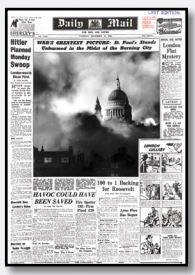 Trial access to the digital archives of these two London newspapers is available until June 18, 2020.
Trial access to the digital archives of these two London newspapers is available until June 18, 2020.
Described by the New Yorker as “the newspaper that rules Britain,” the Daily Mail has been at the heart of British journalism since 1896, regularly changing the course of government policy and setting the national debate. It currently boasts a circulation of over 2 million, and its website is the most visited news site in the world. (See the fact sheet)
Started in 1903, the Daily Mirror was influential in changing the course of British newspapers in the second half of the twentieth century, becoming Britain’s bestselling daily newspaper by 1949. Editorially left-leaning and populist to reflect the views of its target working class audience, it offers a counterpoint to the more conservative newspapers that dominated the late nineteenth- and early-twentieth centuries, such as The Times and The Telegraph. (See the fact sheet)
25 days left to check out RetroNews!
Il s’appelle Pierre Loutrel mais on le connaît sous le nom de « Pierrot-le-fou ». Ce criminel violent, passé de la « Gestapo française » à la Résistance, restera dans les mémoires comme le chef d’un redoutable gang français de l’après-Seconde Guerre, les Tractions Avant.
Écho de Presse le 19/05/2020 par Michele Pedinielli
~~~~~~~~~~~~~~~~~~~~~~~~~~~~~~~~~~~~~~~~~~~
Since April 15, the UC Berkeley academic community has had access to a 60-day trial of RetroNews. While much of this historical French language news collection is freely available through Gallica, the advanced functionality and added content is only available to subscribers. An initiative of BnF-Partenariats, which is a subsidiary of the Bibliothèque nationale de France (BnF), RetroNews aims to increase the digitization of its paper press collections which are increasingly at risk of serious damage over time. To explore all of its features, it is necessary to create an account (s’inscrire) after authenticating with your CalNet ID.
RetroNews, a unique digital resource for research and education
RetroNews, which is the French national library’s platform dedicated to historical printed press, offers a vast online archive of French and francophone periodicals. The collection features over 600 newspapers, journals, magazines and reviews, published between 1631 and 1950: the most important titles of the daily press (Le Petit Parisien, Le Journal, Le Matin) but also periodicals of the political spectrum, regional publications and satirical magazines.
Please create a free account, experiment with the resource and send your feedback and comments before June 15, 2020 to Claude Potts [cpotts AT berkeley DOT edu].
Open Access in Latin American and Caribbean Studies Digital Resources: Episode 3
This is a third episode of Open Access in Latin American and Caribbean Studies Digital Resources. Today, I want to introduce the readers to the Costa Rican Historical Newspapers that have been digitized by SINABI Costa Rica. SINABI (Sistema Nacional De Bibliotecas: Costa Rica) is a system of Costa Rican libraries.
There are over 300 historical newspapers that have been digitized and ready to be used for research. These can be accessed here.

The site allows any user to download these as PDF files. For example, “Actualidades: bisemanario de la vida nacional.” This particular periodical was directed and edited by Francisco Soler and among his collaborators were Mario Sancho, Leonidas Pachecho, and Julián Marchena. It included political information. It began publication on December 4, 1916.
There isn’t evidence that the periodical is OCR’ed and can be cross-searched against the other digitized periodicals and newspapers. Nevertheless, Costa Rica’s 300 historical newspaper titles are available for academic research.
